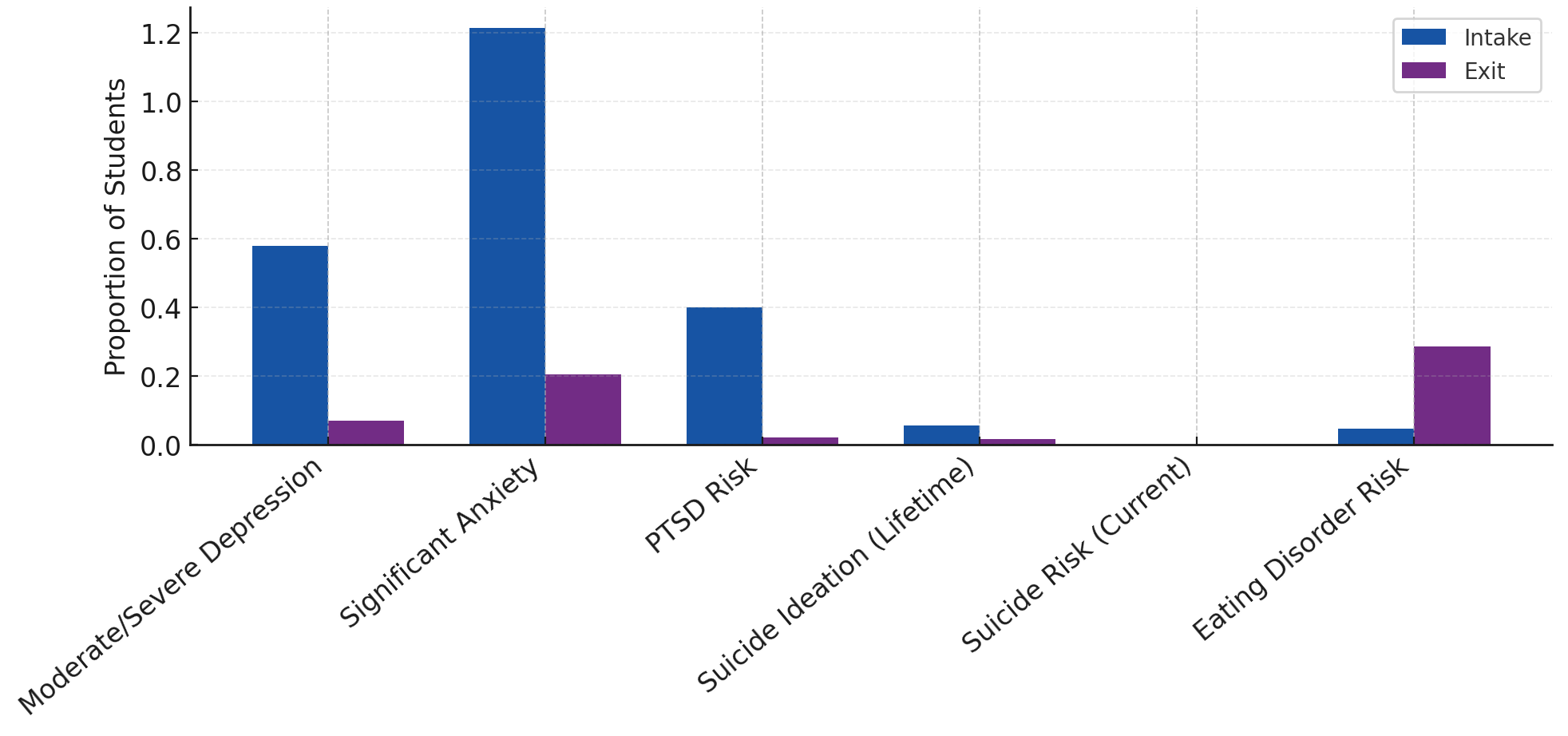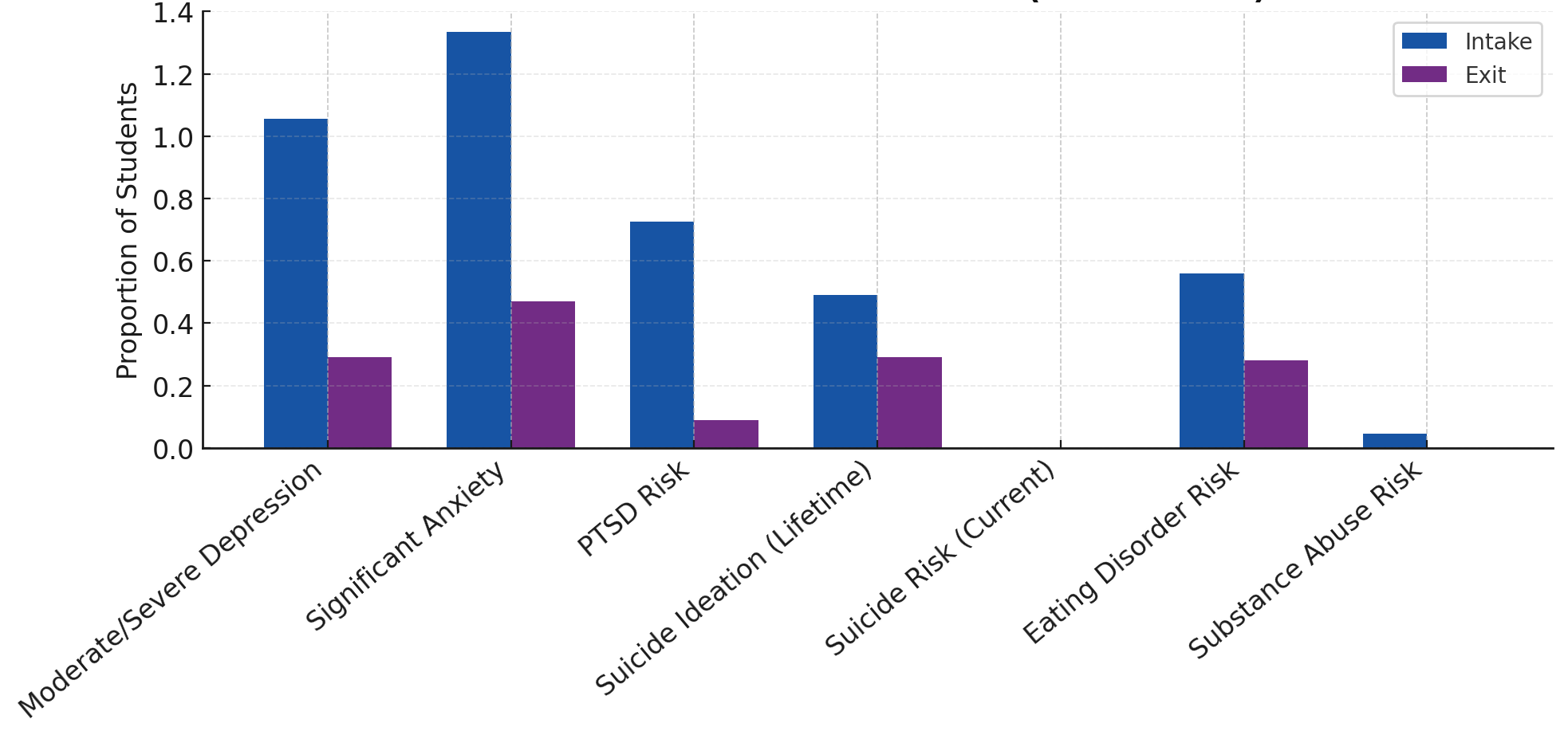Measured Outcomes
Across hundreds of youth and adolescents, results demonstrate significant reductions in mental health symptoms following participation in our program.
GAD-7 Anxiety
35% decrease (7.81 → 5.08)
Behavioral Health Screener (Ages 12 +)
Depression: 1.62 → 1.09
Anxiety: 1.82 → 1.24
PTSD: 1.25 → 0.91
Behavioral Health Screener (Ages 6 – 14)
Depression: 0.826 → 0.285
Anxiety: 1.356 → 0.455
PTSD: 0.41 → 0.175
These findings confirm that our combined approach—coaching, psychoeducation, neuroscience-informed curriculum, and Emotional CPR—directly improves outcomes in the areas of greatest concern for today’s youth.
2024–2025 Data Highlights
Our school-based emotional coaching continues to show measurable reductions in student mental-health risk from intake to exit.
Behavioral Health Screener (2024–2025)

- Moderate/Severe Depression: ↓ 87.9% (0.58 → 0.07)
- Significant Anxiety: ↓ 83.1% (1.215 → 0.205)
- PTSD Risk: ↓ 95.0% (0.40 → 0.02)
- Suicide Ideation (Lifetime): ↓ 72.7% (0.055 → 0.015)
- Current Suicide Risk: 0.00 → 0.00 (remained at zero)
- Eating Disorder Risk: ↑ 533% (0.045 → 0.285) (increase likely reflects improved awareness & disclosure)
GAD-7 Anxiety: 50.8% reduction from intake to exit.
Behavioral Health Screener (2024–2025)

- Moderate/Severe Depression: ↓ 72.5% (1.055 → 0.29)
- Significant Anxiety: ↓ 64.8% (1.335 → 0.47)
- PTSD Risk: ↓ 87.6% (0.725 → 0.09)
- Suicide Ideation (Lifetime): ↓ 40.8% (0.49 → 0.29)
- Current Suicide Risk: 0.00 → 0.00 (remained at zero)
- Eating Disorder Risk: ↓ 50.0% (0.56 → 0.28)
- Substance Abuse Risk: ↓ 100% (0.045 → 0.00)
What this shows: Students receiving consistent, relationship-centered emotional coaching show dramatic decreases in anxiety, depression, and PTSD risk. Where increases occur (such as disordered eating), they often reflect improved trust and early identification rather than worsening outcomes.
